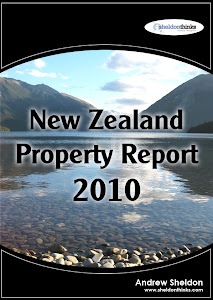New Zealand, like every Western democracy, is paying a very high price for its system of justice. Consider this very expensive case of compensation for David Bain, the man determined to have been wrongfully convicted for the murder of family members. The government established a committee to investigate and determine a fair compensatory package for the 'innocent man'. Behind the scenes, the Minister for Justice, Judith Collins, is said to have done her own assessment and ruled out the report by an independent judicial officer.
This case strikes me as the silliness of our system. Not that David does not deserve justice, but because we all do. Justice, both in terms of an effective and efficient system, but also one which does not result in a burden upon us all for very little value. Tax payer funds wasted.
The problem here is that an 'independent commission' was never the way the system should have determined fair value for a wrongful conviction; and the capacity of a minister to rule-out such an independent value, should not have been a counter-option. The problem is that the system is a framework for extortion, replete with 'mandates' or the government's prerogative. Judith's efforts are not wrong. Our system should be 'adversarial' in the sense of entertaining options or opinions. The problem is that its extortionate in the sense that Judith has effectively imposed her will, and the system gives her that power. I don't blame her; but I blame politicians collectively for positing as custodians of a system they do not know how to fix. They thus become the problem. You and I are powerless to 'fix' them to fix the system. This is not a system open to political or any other pertinent discourse. We cannot look for answers within this system. This is an extortion system which imposes arguments. There is no reconciliation; there is no acountability; given that a disinterested, disempowered, alienated electorate is trumped by politically polarised, reactive group of legislators scared of 'boo'.
Asian property markets outperforming Japan Foreclosed Guide Philippines Property Guide
Profit from mining with Global Mining Investing eBook
This case strikes me as the silliness of our system. Not that David does not deserve justice, but because we all do. Justice, both in terms of an effective and efficient system, but also one which does not result in a burden upon us all for very little value. Tax payer funds wasted.
The problem here is that an 'independent commission' was never the way the system should have determined fair value for a wrongful conviction; and the capacity of a minister to rule-out such an independent value, should not have been a counter-option. The problem is that the system is a framework for extortion, replete with 'mandates' or the government's prerogative. Judith's efforts are not wrong. Our system should be 'adversarial' in the sense of entertaining options or opinions. The problem is that its extortionate in the sense that Judith has effectively imposed her will, and the system gives her that power. I don't blame her; but I blame politicians collectively for positing as custodians of a system they do not know how to fix. They thus become the problem. You and I are powerless to 'fix' them to fix the system. This is not a system open to political or any other pertinent discourse. We cannot look for answers within this system. This is an extortion system which imposes arguments. There is no reconciliation; there is no acountability; given that a disinterested, disempowered, alienated electorate is trumped by politically polarised, reactive group of legislators scared of 'boo'.
Asian property markets outperforming Japan Foreclosed Guide Philippines Property Guide
Profit from mining with Global Mining Investing eBook


